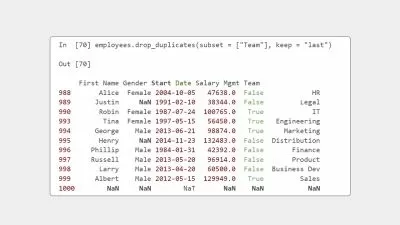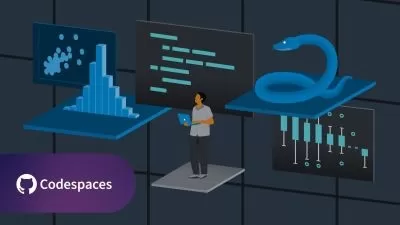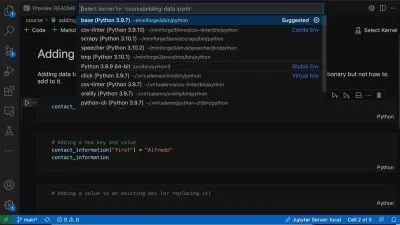Introduction to Qdrant (Vector Database) Using Python
Vijay Anand Ramakrishnan
1:45:29
Description
Learn the basics of Qdrant (Vector Database), Indexing the data, snapshots, Python Client with examples and more !
What You'll Learn?
- Basics of Vector databases
- Introduction to Qdrant and Installing Qdrant
- Collections, Segments and Points in Qdrant
- Vector and payload fields in a Collection
- Vector and Payload indexing
- Vector similarity search on a Collection and filtering the results based on payload
- Quantizing the vectors
- Configuring Qdrant Server
Who is this for?
What You Need to Know?
More details
DescriptionQdrant is an Open Source vector database with in-built vector similarity search engine. Qdrant is written in Rust and is proven to be fast and reliable even under high load in production environment. Qdrant provides convenient API to store, search and manage vectors along with the associated payload for the vectors.
This course will provide you with solid practical Skills in Qdrant using its Python interface. Before you begin, you are required to have basic knowledge on
Python Programming
Linux Commands
Docker and Docker Compose
Some of the highlights of this course are
All lectures have been designed from the ground up to make the complex topics easy to understand
Ample working examples demonstrated in the video lectures
Downloadable Python notebooks for the examples that were used in the course
Precise and informative video lectures
Quiz at the end of every important video lectures
Covers a wide range of fundamental topics in Qdrant
After completing this course, you will be able to
Install and work with Qdrant using Python
Manage Collections in Qdrant
Perform vector search on vectors stored in Qdrant collection
Filter the search results
Create and manage snapshots
Use Qdrant to build scalable real-world AI apps
This course will be updated periodically and enroll now to get lifelong access to this course!
Who this course is for:
- Data Scientists
- AI Engineers
- Machine Learning Engineers
- MLOps Engineers
- Data Scientists
- Anyone who is motivated to learn and work with a Vector database
Qdrant is an Open Source vector database with in-built vector similarity search engine. Qdrant is written in Rust and is proven to be fast and reliable even under high load in production environment. Qdrant provides convenient API to store, search and manage vectors along with the associated payload for the vectors.
This course will provide you with solid practical Skills in Qdrant using its Python interface. Before you begin, you are required to have basic knowledge on
Python Programming
Linux Commands
Docker and Docker Compose
Some of the highlights of this course are
All lectures have been designed from the ground up to make the complex topics easy to understand
Ample working examples demonstrated in the video lectures
Downloadable Python notebooks for the examples that were used in the course
Precise and informative video lectures
Quiz at the end of every important video lectures
Covers a wide range of fundamental topics in Qdrant
After completing this course, you will be able to
Install and work with Qdrant using Python
Manage Collections in Qdrant
Perform vector search on vectors stored in Qdrant collection
Filter the search results
Create and manage snapshots
Use Qdrant to build scalable real-world AI apps
This course will be updated periodically and enroll now to get lifelong access to this course!
Who this course is for:
- Data Scientists
- AI Engineers
- Machine Learning Engineers
- MLOps Engineers
- Data Scientists
- Anyone who is motivated to learn and work with a Vector database
User Reviews
Rating
Vijay Anand Ramakrishnan
Instructor's Courses
Udemy
View courses Udemy- language english
- Training sessions 24
- duration 1:45:29
- Release Date 2024/05/18









